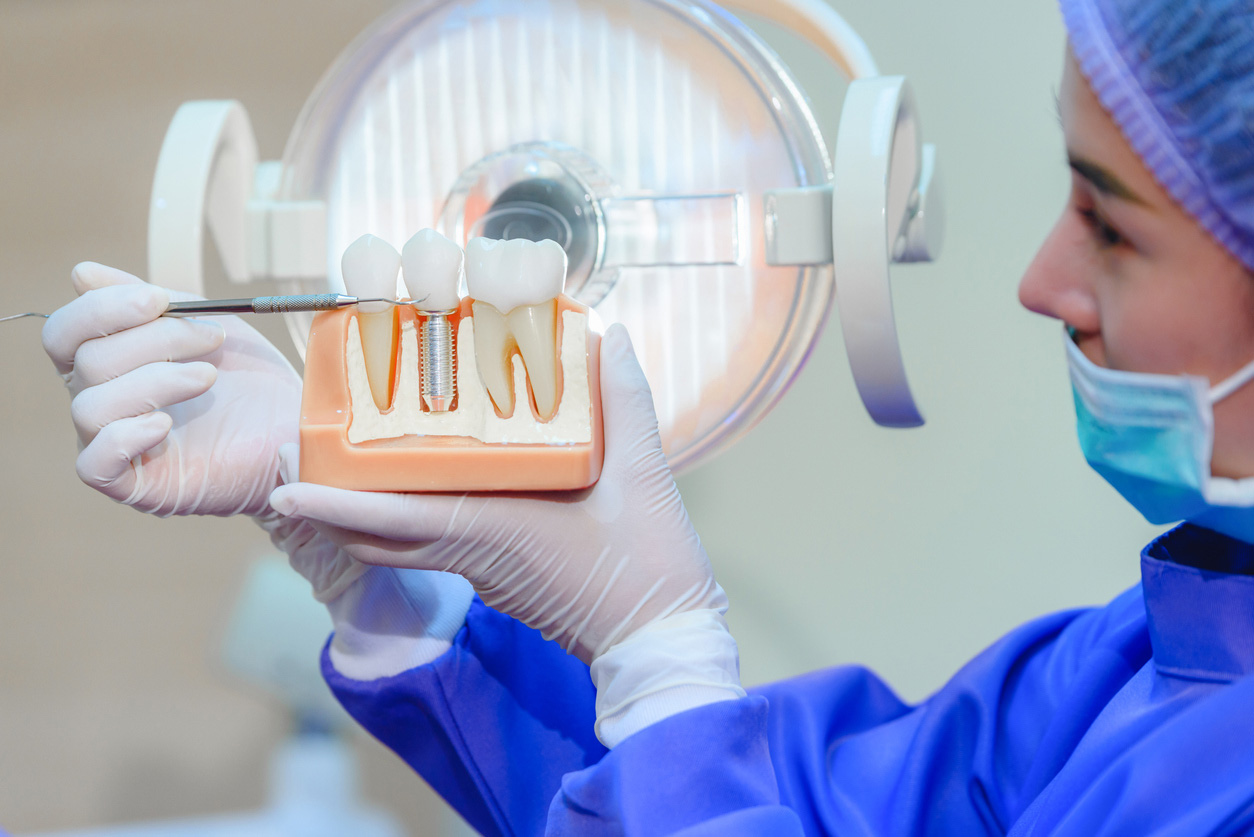
Posted on September 19, 2024
Dental implants have revolutionized tooth replacement, offering a durable and aesthetically pleasing solution. However, their success is intricately linked to the health of the surrounding bone. Understanding the relationship between dental implants and bone health is crucial for ensuring a successful outcome.
Bone Integration and Implant Success
The cornerstone of dental implant success lies in a process called osseointegration. This refers to the direct integration of the implant with the bone, creating a stable foundation for the artificial tooth. For osseointegration to occur effectively, the bone must be healthy and dense. When implants are placed, the surrounding bone undergoes a process called bone integration, where it grows around the implant, anchoring it securely. You can read more about the specific steps in the dental implant process here.
Impact of Bone Loss
Bone loss can significantly impact the success of dental implants. Factors such as periodontal disease, aging, and previous tooth loss can contribute to a reduction in bone density. Insufficient bone density may not provide the necessary support for the implant, leading to potential complications or implant failure. It’s essential for patients to maintain good bone health to ensure the implant’s stability and longevity.
Addressing Bone Density Issues
For individuals with compromised bone density, bone grafting is often a viable solution. Bone grafting involves the transplantation of bone tissue to the implant site to enhance bone volume and density. This procedure can be particularly beneficial for patients who have experienced significant bone loss. Several grafting options are available, including autografts (bone taken from the patient’s own body), allografts (donor bone), and synthetic or alloplastic materials. Each option has its advantages, depending on the individual’s specific needs and health conditions.
The Importance of Bone Health
Maintaining optimal bone health is critical for the success of dental implants. A thorough assessment by a dental professional will evaluate bone density and determine if bone grafting is necessary. Regular dental check-ups and imaging can help monitor bone health and detect any issues early on.
The success of dental implants hinges on effective osseointegration and robust bone health. Understanding the role of bone integration and addressing potential issues with bone density through bone grafting can significantly enhance the outcome of dental implant procedures. If you’re considering dental implants, contact Creek View Dental today to ensure your bone health is optimized for a successful and long-lasting result.
